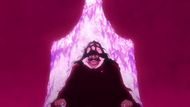Among anime’s most talked-about villains, Yhwach, who closes out the renowned Bleach saga, has stirred up much controversy. There are many discussions about this character’s effectiveness as an antagonist of the Thousand-Year Blood War arc. Even though he commands the Quincy empire, does he become a well-written villain?
Yes, Yhwach is a powerful villain and a godlike figure whose saga is well-written for the plot, having abilities that border on supremacy. The moment Yhwach emerges in the Thousand-Year Blood War arc, the entire atmosphere of Bleach shifts. His calm demeanor hides a terrifying desire to control fate itself.
Yhwach’s character is shrouded in mystery. From his early silence to his calculated attacks, he appears less emotional and more goal-driven. His aura is cold but commanding, and his very presence unnerves even seasoned captains. This alone gives him the traits of a strong villain: command, clarity, and a vision.

Yhwach represents ideology, control, and destiny. These aren’t traits every villain in Bleach gets to explore. His ability to see every possible future makes battles against him feel hopeless. That oppressive vibe helps elevate the stakes. Still, while his threat level is high, his character development feels limited in comparison to someone like Aizen. His goals are clear, but they’re not always personal.
Yhwach was born as a being who granted life and healed others, he was worshipped as a savior by many. Ironically, this godlike power fuels his belief that he should control all souls, living or dead. He began as a giver of life. But the moment he’s revived after death, he shifts. Now, he seeks a world where death does not exist—but it comes at the cost of freedom.
The Almighty and His Abilities in Bleach

One thing Bleach does well is making Yhwach feel invincible. His main power, the Almighty, lets him see every possible future and even change it. It’s a terrifying ability that renders most strategies useless. The way he wipes out Soul Society’s defenses proves how overpowered he is. And that’s the problem—he’s so strong that battles lose tension. Viewers start wondering not “how will they beat him?” but “how will the plot make him lose?”
On paper, The Almighty is a genius. In execution, it sometimes hinders suspense. Still, his sheer dominance forces every character to evolve. That pressure brings out the best (and worst) in Ichigo, Uryu, and others. So while his power may be too much, its effect on the story is undeniable.
His philosophy feels both noble and horrifying. On one hand, who wouldn’t want a world without death? On the other hand, it means taking away choice, freedom, and individuality. That moral grayness gives Yhwach complexity.
Many great villains in anime think they’re the heroes. Yhwach fits that mold. But what’s lacking is a personal anchor. No family. No mentor. Just ideology. That makes him feel more distant than relatable in Bleach.
Comparing the Writing Style of Yhwach and Aizen

Tite Kubo intentionally crafted Yhwach as the ultimate antagonist to close the saga with a force that challenged everything established before. He’s the antithesis of Soul Society. Where they preserve balance, Yhwach seeks unification through control. It’s a bold contrast. From a storytelling standpoint, Yhwach’s position in the plot is firmly established and leaves little room for ambiguity. He’s a symbol of fate, inevitability, and the fear of death. In that sense, Kubo achieved his goal.
In terms of writing, Aizen arguably feels more “human.” His motivations, while grand, stem from a desire to surpass his limits and find purpose. Yhwach wants to erase limits altogether, making him feel more abstract.
From a story arc perspective in Bleach, Aizen’s story has more buildup. His betrayal was years in the making. Even though he’s important, Yhwach shows up late and only takes center stage in the final chapters. This shorter window of development limits his emotional depth.
In short, Yhawch in Bleach is a well-written villain with an ambitious, terrifying, and ideological complexity. But he also suffers from rushed development, limited emotional depth, and an unsatisfying conclusion. Still, whether you love or hate him, Yhwach did what every final villain should.
